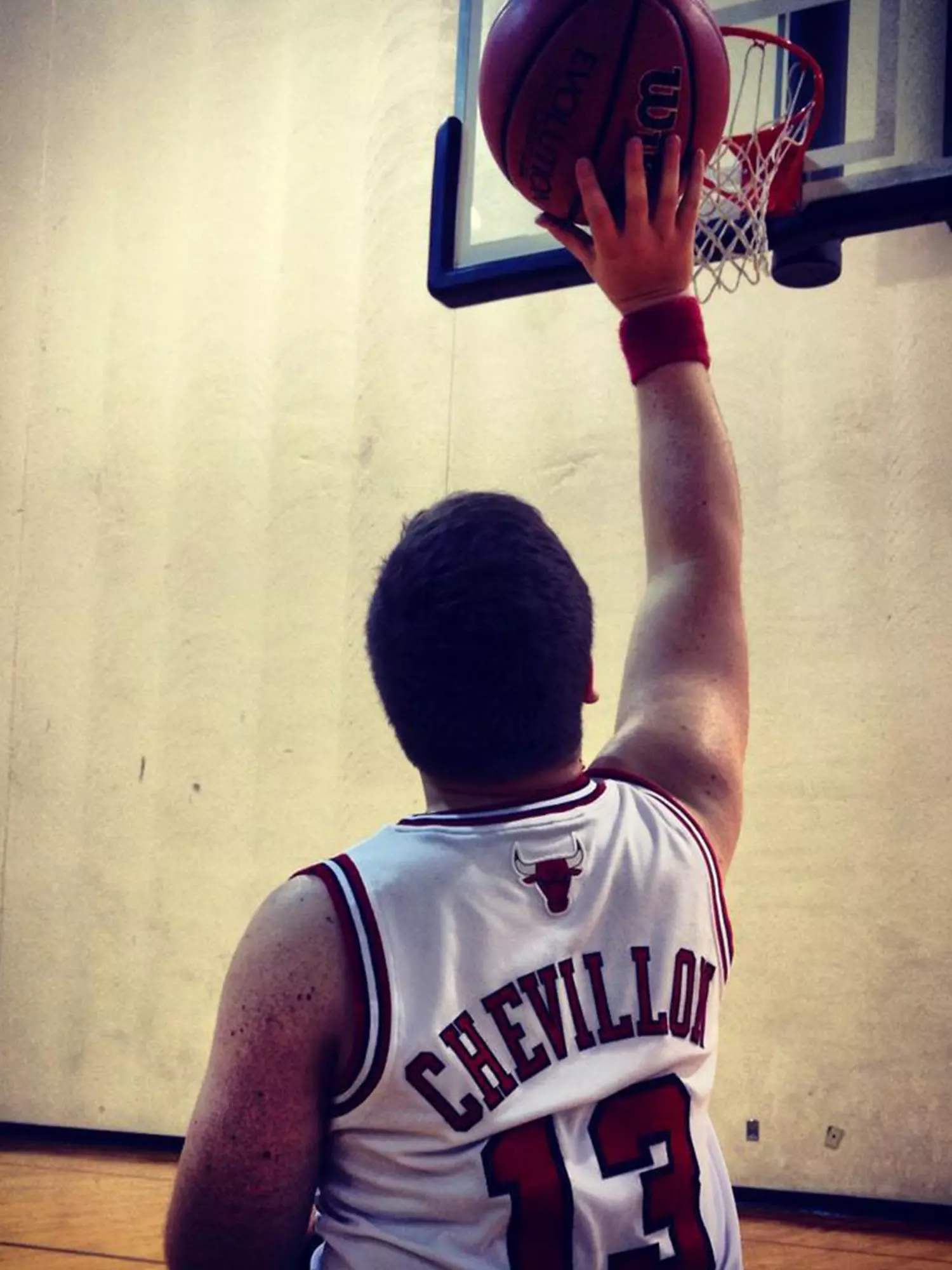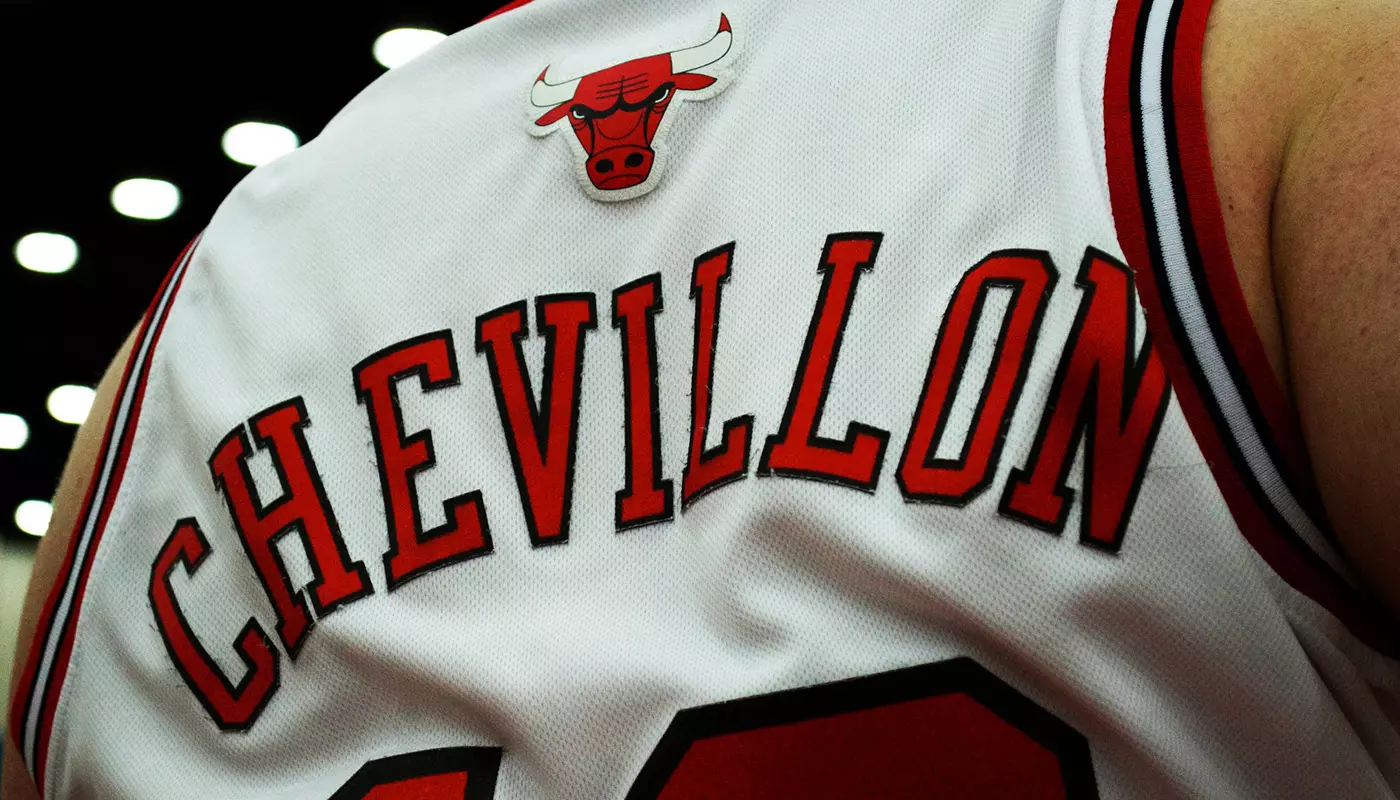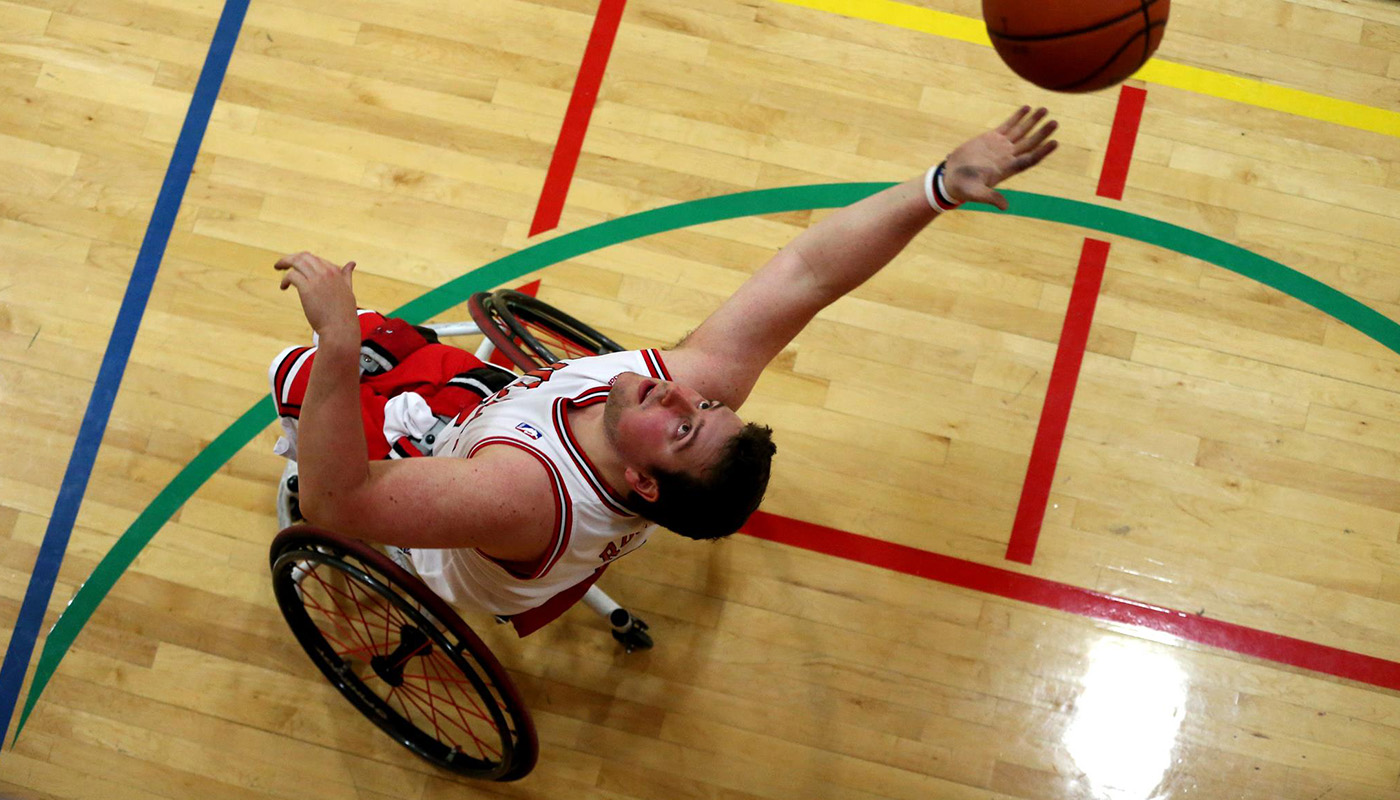

American Dream
At first sight, it's hard to realize Benjamin Chevillon has such a great record. Yet, the 33-year-old basketball player with 40 french team selections and a season with the Chicago Bulls, has a little story to tell.
Benjamin lost the use of his legs following leukaemia treatment when he was 5 years old. It wasn't until a decade later that he decided to venture into the basketball club down the street. Cheeky, the coach, tested him out at the first practice by asking him to pick up a rolling ball. Instinctively, he snatched it like a vet, and the rest is history.

Playing a team sport helped him to gain perspective of and overcome his mobility situation. He talks non-stop about the beauty of the game, which he describes as dance routine. "When you watch the best teams in Europe play, it's a ballet, it's insane." Two years later, the 19 year-old joined the U20 national team thanks to a couple of good performances against the manager’s team. At the same time, he successfully tried out for the University of Alabama team, but his scholarship was cancelled because of the financial crisis. He first crossed paths with the Bulls head coach, Daniel Feirrera, in 2009 at the world championship. "He had heard about my aborted transfer to Alabama and invited me to join the Bulls."
But Benjamin was not ready to give up everything to become a professional; his mind was on his studies. Determined, Daniel Feirrera renewed his proposal in 2012 and, after a week of try-outs in Chicago, everything was arranged. The NWBA’s standard of professionalism leaves him speechless. He does not have to worry about housing, a car, a physiotherapist, logistics...everything is taken care of. “All we think about is basketball”. On court, Benjamin is going toe-to-toe with his idols Patrick Anderson, Steve Serio, Bryan Bell and his personal G.O.A.T, Matt Scott - “the man who does magic in a wheelchair”, he says. After experiencing some issues trying to adapt, he learned how to clear his mind under the guidance of head coach, Daniel Feirrera: "Basketball is 70% in the head and 30% ability", and became an All-Star. He returned home armed with this advice and driven by a strong entrepreneurial spirit. Retired from competition, he dived head first into media buying, which requires the same qualities as his point guard position. His finely honed anticipation and analysis capabilities on the court will be helpful as a Google ads expert. His only regret is having missed the craziness of college basketball, but Benjamin is a man who looks forwards, not back.

A little bit of history:
Wheelchair basketball was developed in the 1950s by Doctor Guttman. The rules are the same except for contact violations. Special attention is paid to the wheelchair, whose specs are strictly regulated. In addition, the players must be strapped in.
Photo benchevillon



On court, the 29-year-old basketball player extolled in Drake’s song looks like Wonder Woman with a basketball. Too tall and too loud, Liz seems invincible. Yet she proved the world wrong, by being one of the first to open up about mental issues among professional athletes.
Despite their celebrity status, athletes get lonely too. Especially women exhausted from being harassed on social media and playing never-ending seasons to make a living. Once the lucrative international seasons are over, women players then immediately turn their attention to the American league in the summer. Depression often results from this unrelenting schedule. Liz has been stacking up trauma all her life; raised as a black girl in Melbourne by her mother and grandmother. No father figure, nor black role model. The cut was so deep that she started wearing blue contact lenses and dying her hair, but it was not enough to stop her classmates mocking her complexion, height and shape.

Liz was already feeling like ending her life at nine years old, so her mother signed her up to basketball to make friends. At the age of 19, she was one of the best players in the world, yet she suffered from the pressure of not being able to lead her teams to victory. Whether in Tulsa or in China, she could not handle the blame and cried every night, miles away from home. The worst part was that she couldn't count on support from her teammates, yet camaraderie was the main reason for her love for the game. She reached breaking point in December 2016. Sinking into parties, self-medication and alcohol, after blaming herself for the Australian team’s failure at the Olympics, Liz was placed on suicide watch and moved back in with her mum. Rejecting the same fate as her best friend from school who killed herself, she took a year off from basketball, trying new things like DJing and designing clothes. She chose life.
These days, Liz has found her way back to the hoops. She came back a changed person and more vocal about sexism and racism. The real Liz Cambage is not invincible, she is unapologetic.
Illustration | toki.walkie



